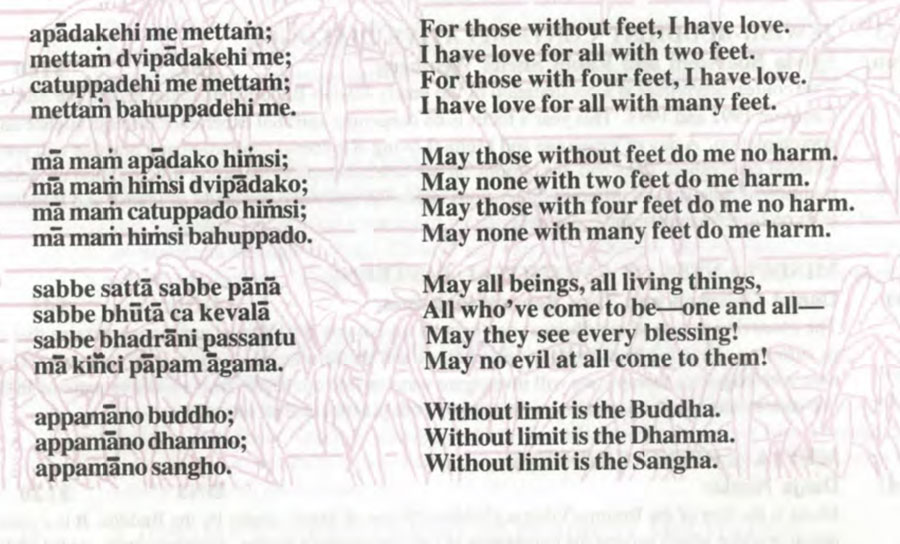Cullavagga V.6

This less-well-known mettā verse has its origins in an ancient, probably pre-Buddhist, snake charm. It is taught by the Buddha in the Vinaya in response to his hearing of a monk who perished after being bitten by a snake. The first stanza, not translated here, extends loving kindness to the four main groups of snake deities.
The Buddha tells the monks that if they adequately develop loving kindness to these snake deities, they will be free of harm from snake bites.
More interesting is the characteristic way in which the Buddha adapts an existing tradition—charms against snake bites—to serve as a vehicle for his own more universal teaching. He expands the cultivation of loving kindness far beyond snakes and reptiles to include insects, animals and all human beings. At the same time he emphasizes the interdependent thinking that one’s best protection against being harmed is to do no harm oneself to others.
The word mettā has a more unique scope than even that most protean of English words—love—can easily express. Except for the fact that it throws off the eight-syllable meter of the verse, one can easily substitute words such as friendship, friendliness, deep unselfish caring or loving kindness.